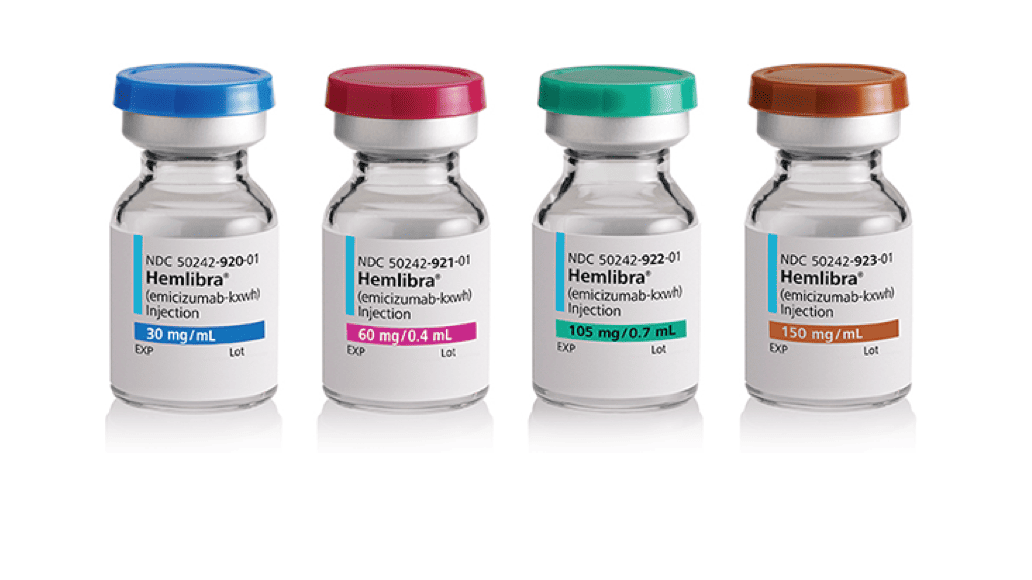
Roche has published data on its new haemophilia A drug Hemlibra that could expand its use into a much broader patient population.
The HAVEN-3 trial – first reported last year and now published in the New England Journal of Medicine – shows that Hemlibra (emicizumab-kxwh) is effective at reducing bleeding episodes in haemophilia A patients without inhibitors to factor VIII. Last year, Roche won approval for the drug in patients with inhibitors – antibodies that attach to factor VIII replacement drugs used to treat the disease and stop them working properly.
The drug is currently under regulatory review for haemophilia A without inhibitors and, if approved, could be eligible for use in all haemophilia A patients, rather than 10% to 30% (depending on symptom severity) at present who develop inhibitors. And that means it could mount a direct challenge to recombinant factor VIII drugs, the standard therapy for the disease and a multibillion dollar market. The FDA is due to deliver a verdict on its marketing application in non-inhibitor patients by 4 October.
Hemlibra is a bispecific antibody that binds to factor IXa and factor X, mimicking the role factor VIII plays in the blood.
HAVEN-3 showed a significant and clinically meaningful reduction in the number of treated bleeds over time in patients aged 12 and older who received Hemlibra prophylaxis, compared to those receiving no prophylaxis.
Roche also says that data from the study which compared Hemlibra to earlier factor VIII prophylaxis in the same patients showed a 68% reduction in bleeds that required treatment – the first time that any drug has shown an improvement over the current standard haemophilia A therapy. It also says 98% of patients in this trial preferred Hemlibra over factor VIII prophylaxis.
Hemlibra can also be given by subcutaneous injection (every one or two weeks) while “current prophylactic treatment options for people with haemophilia A can require frequent intravenous infusions,” according to Sandra Horning, Roche’s chief medical officer.
There are several short-acting factor VIII drugs vying for a share of the haemophilia A market, and despite efforts to transition patients to long-acting variants which can be given every few days, such as Shire’s Adynovate, Biogen’s Eloctate, Bayer’s Kovaltry and CSL Behring’s Afstyla, uptake hasn’t been as quick as hoped.
Moreover, despite current preventative treatment, many patients continue to have bleeds that can lead to long-term joint damage. Horning added: “Given the challenges many people face managing their haemophilia, we believe Hemlibra could make a meaningful difference.”
The combination of increased efficacy and easier administration has some analysts predicting stellar sales for Hemlibra, although the drug has faced a couple of setbacks, including a safety scare last year centred on a type of blood clot called thrombotic microangiopathy and a legal challenge from Shire accusing Roche of misinformation and disparaging its Feiba product.
Roche launched Hemlibra in the US at a price of $482,000 for the first year and $448,000 thereafter, a pricing level that the Institute for Clinical and Economic Review (ICER) described as “cost-saving” given that the current costs of treating haemophilia A are huge.
Sales reached a little under $60m in the first half of the year in inhibitor patients, with uptake “really strong” and “exceeding expectations” in the first half of the year, according to Roche’s chief operating officer Dan O’Day.




